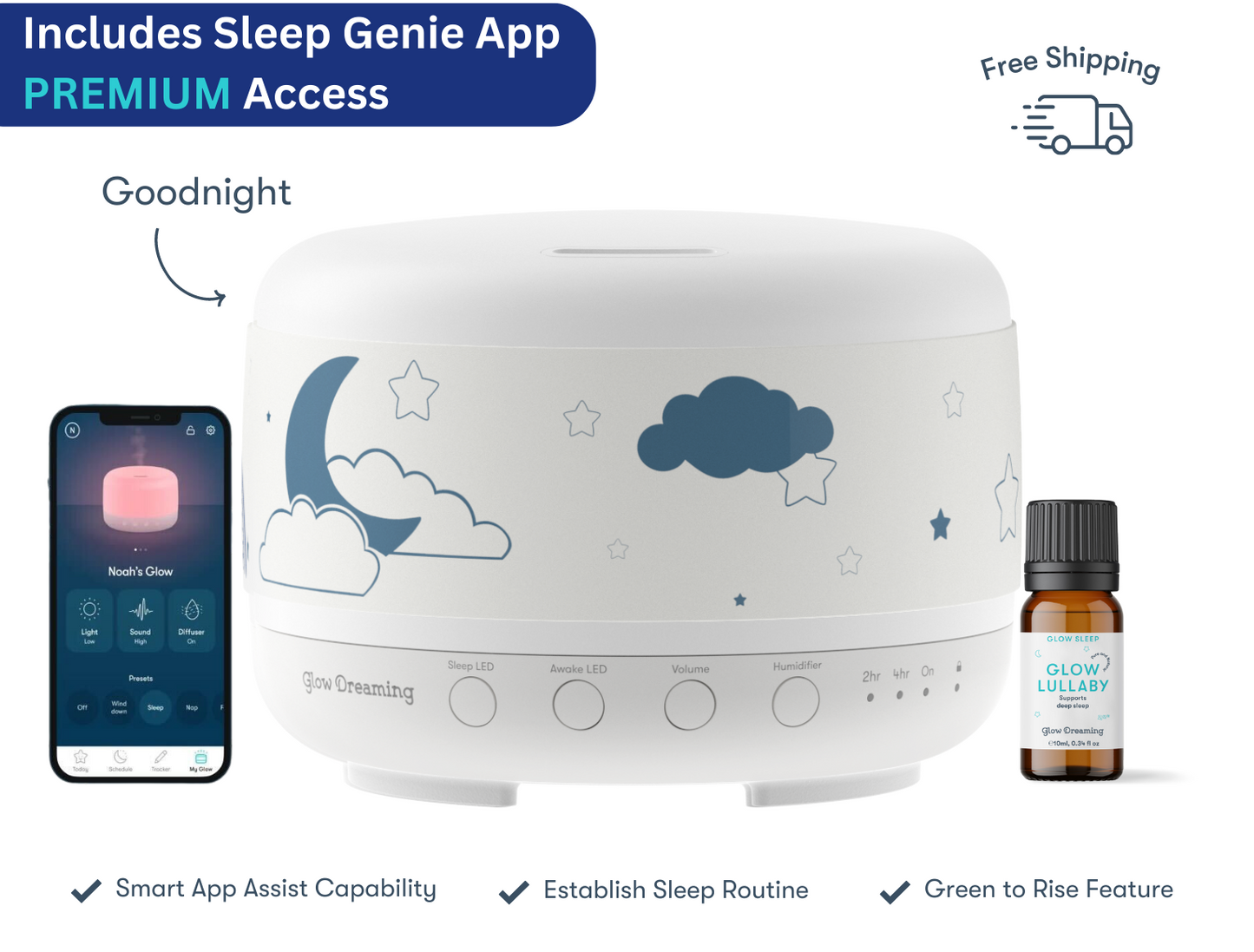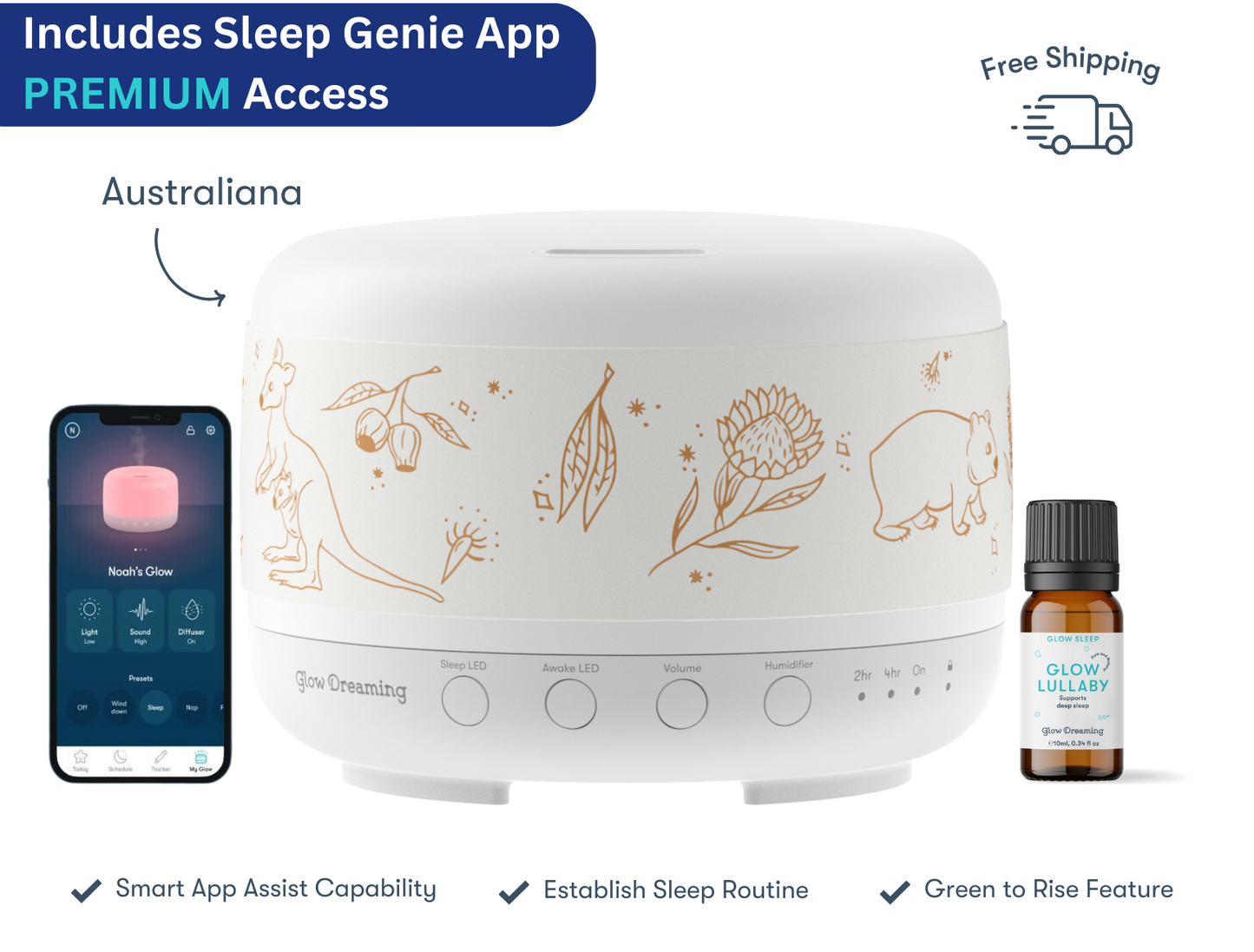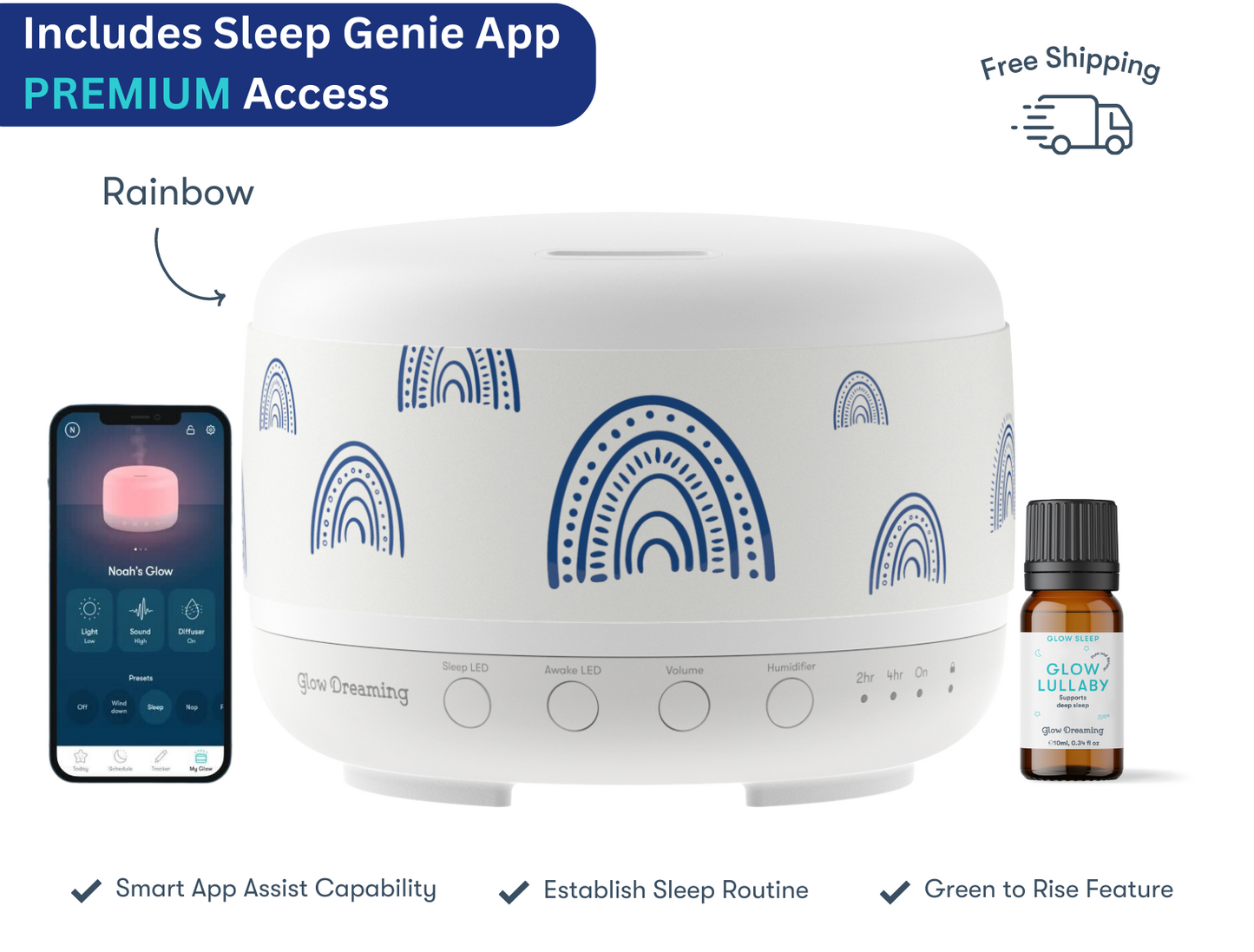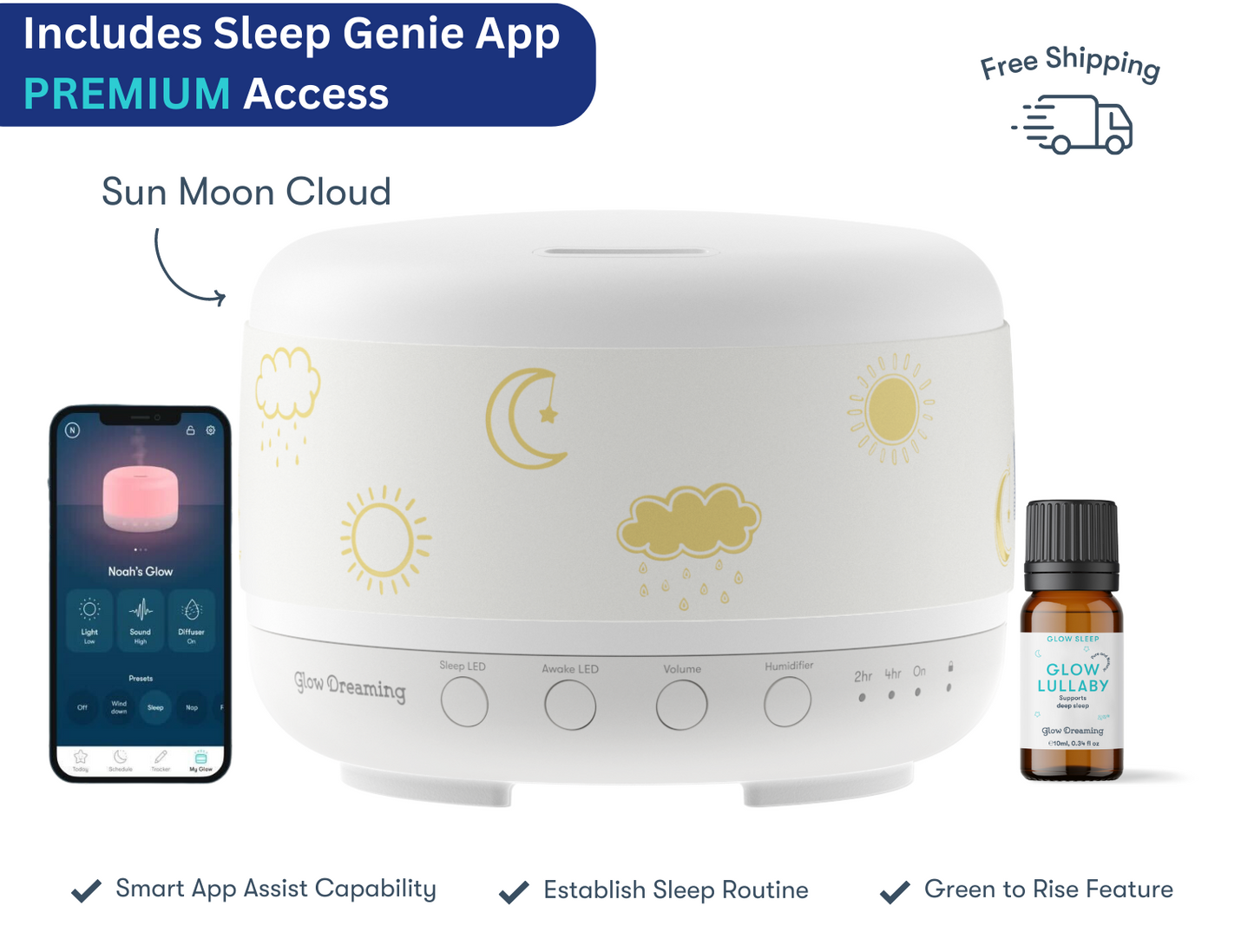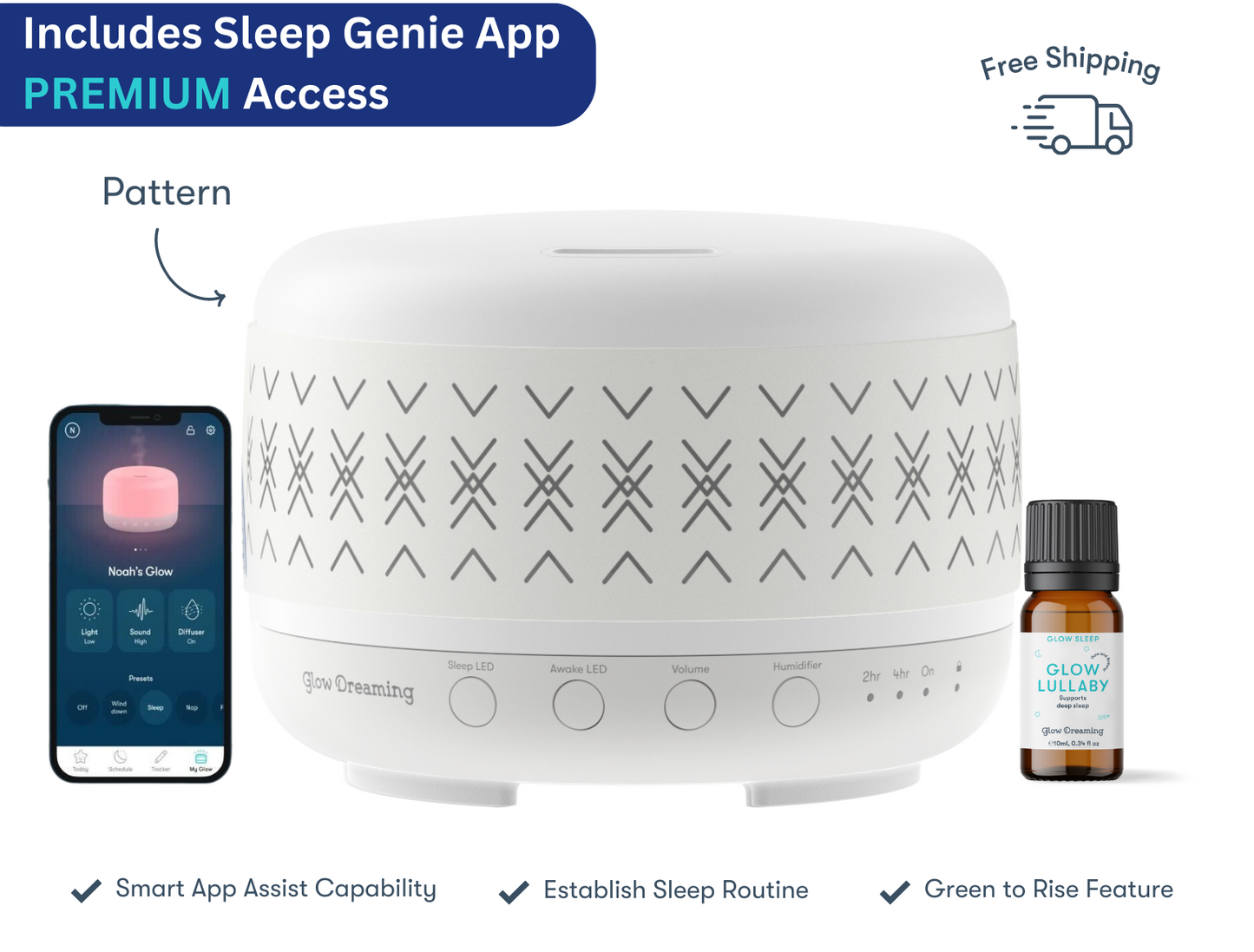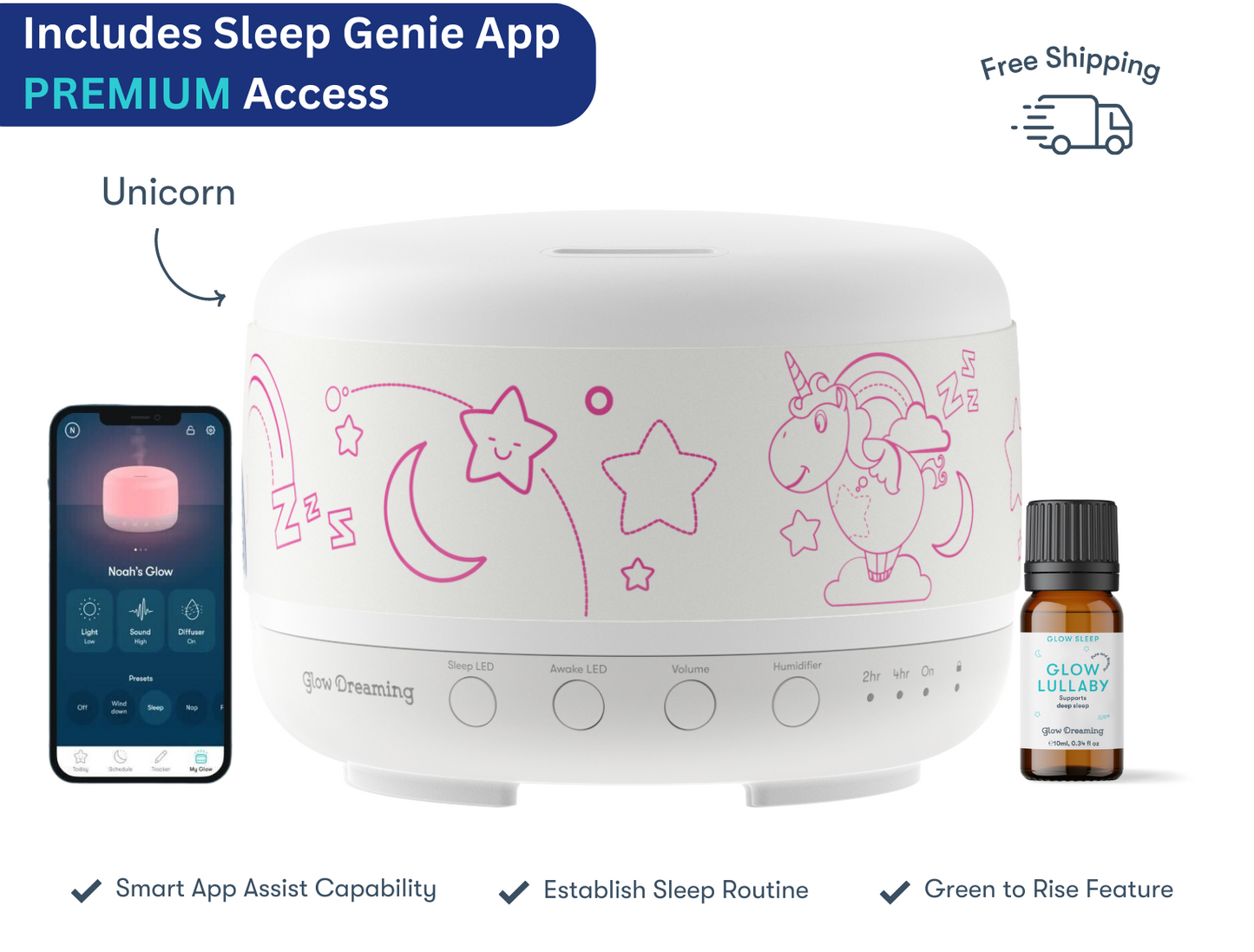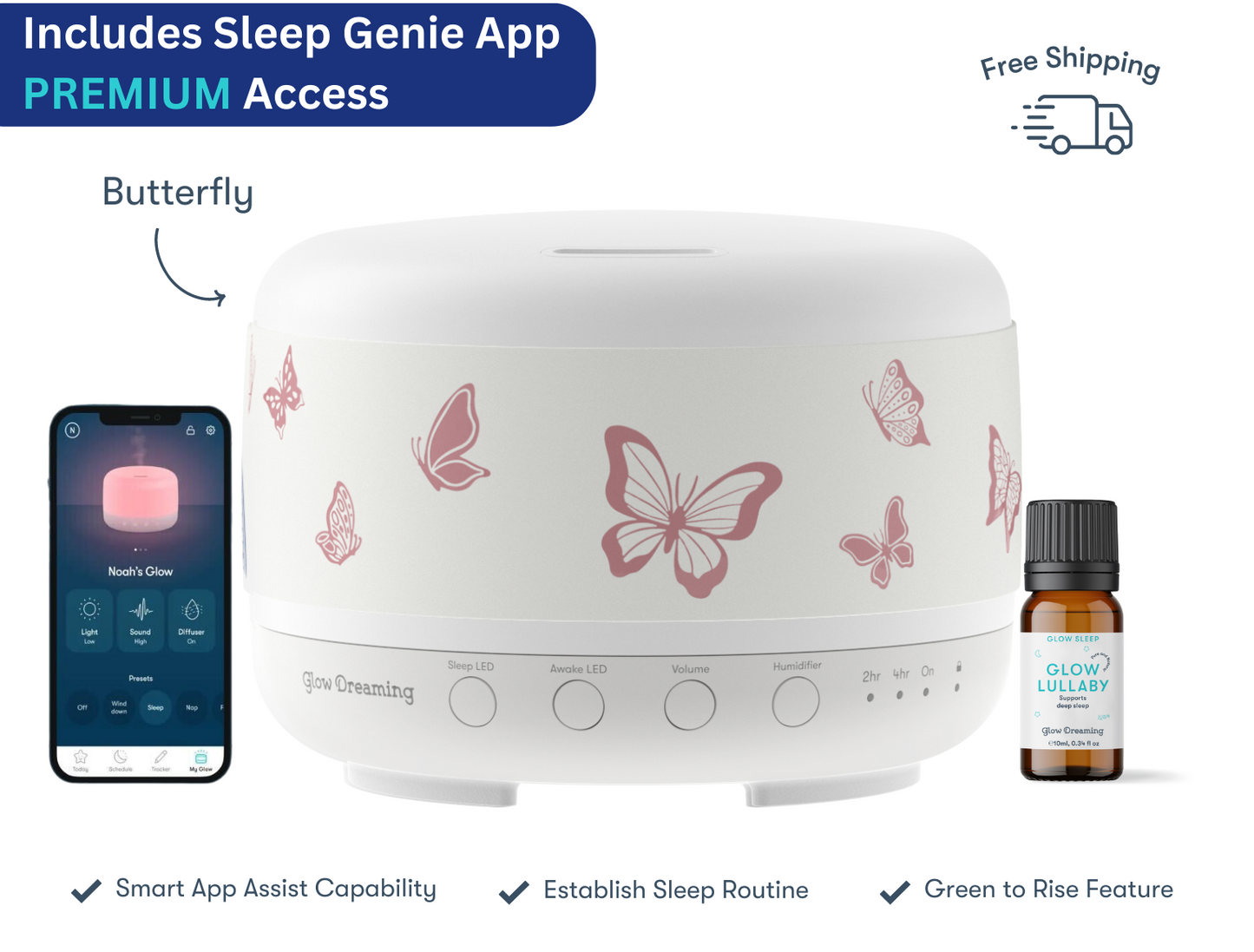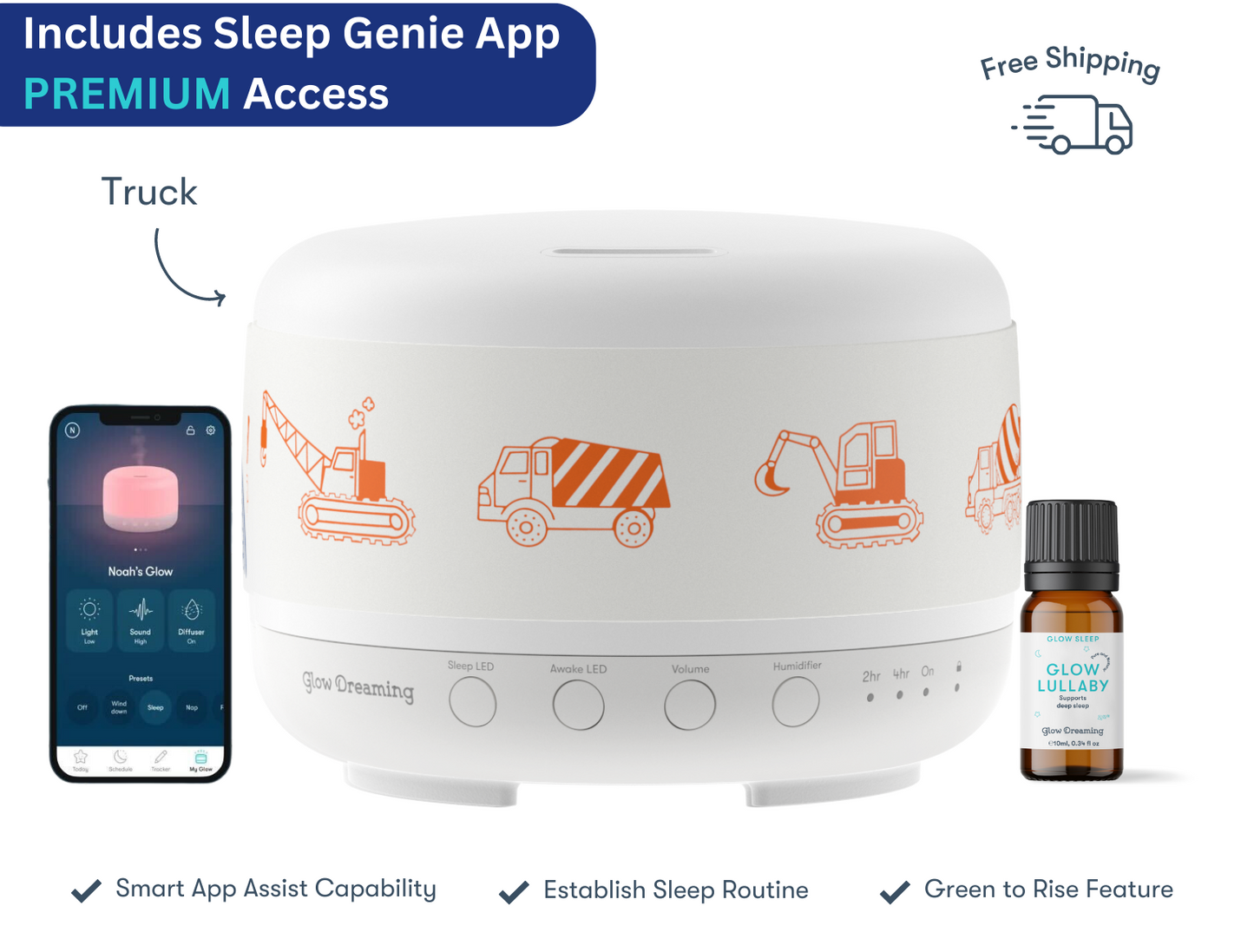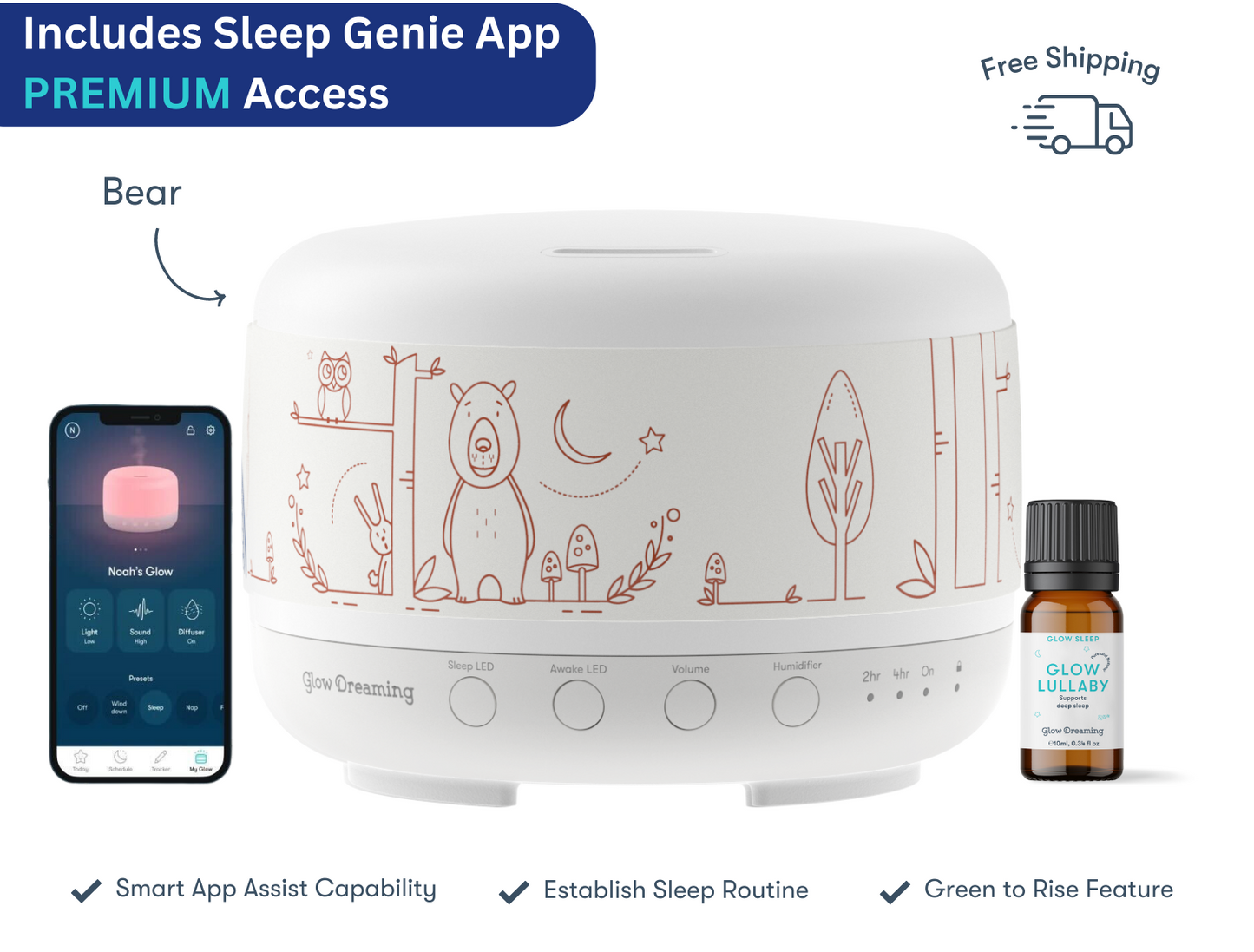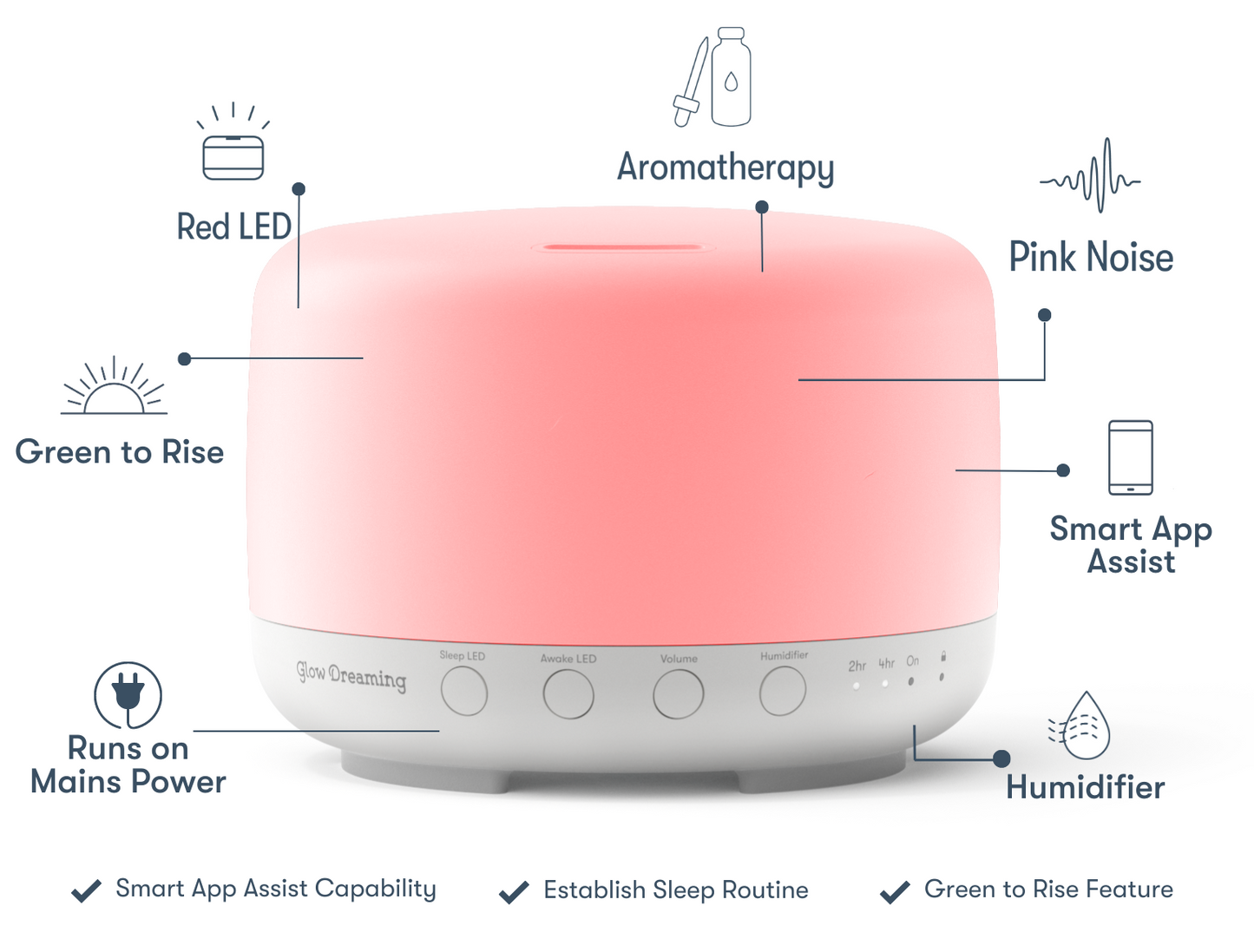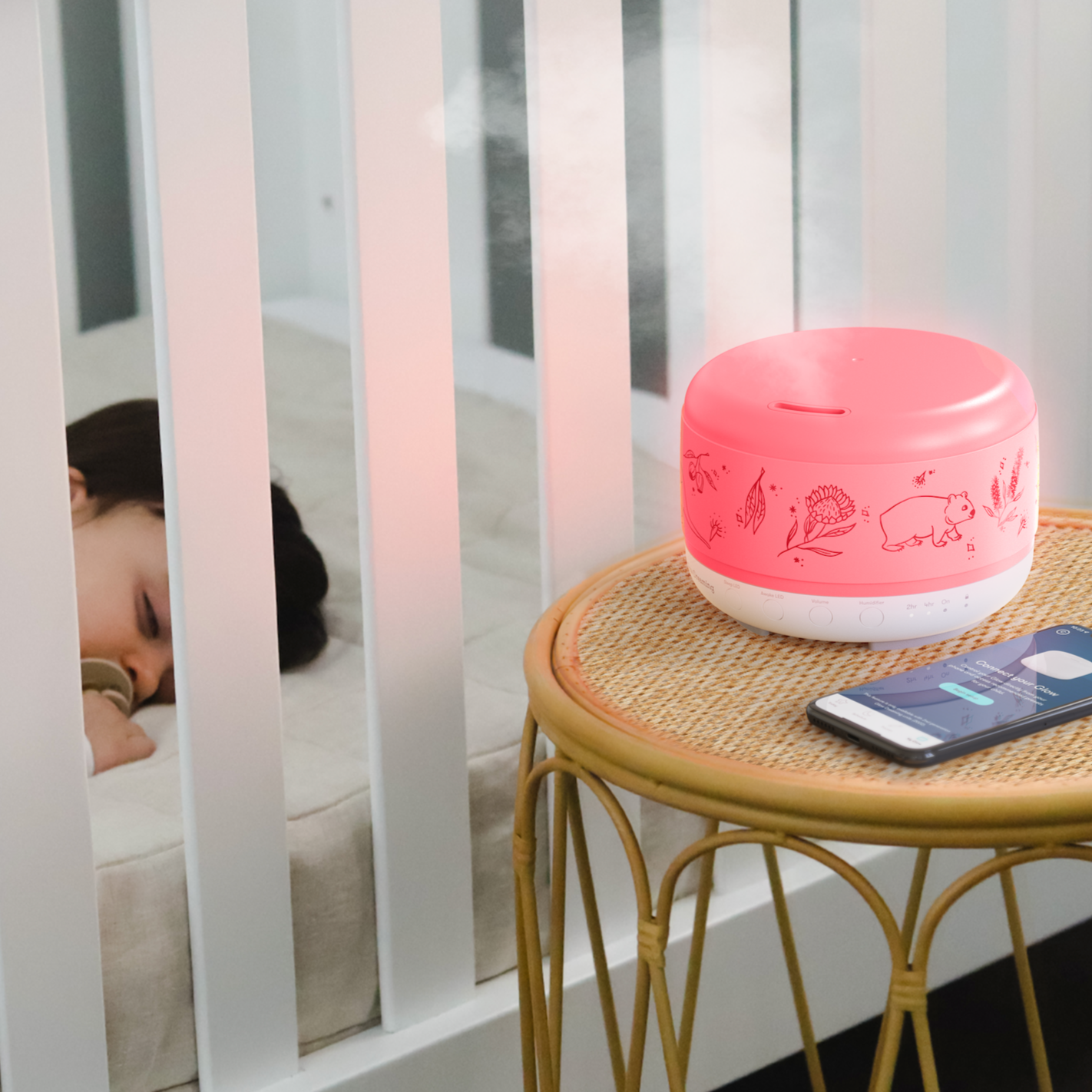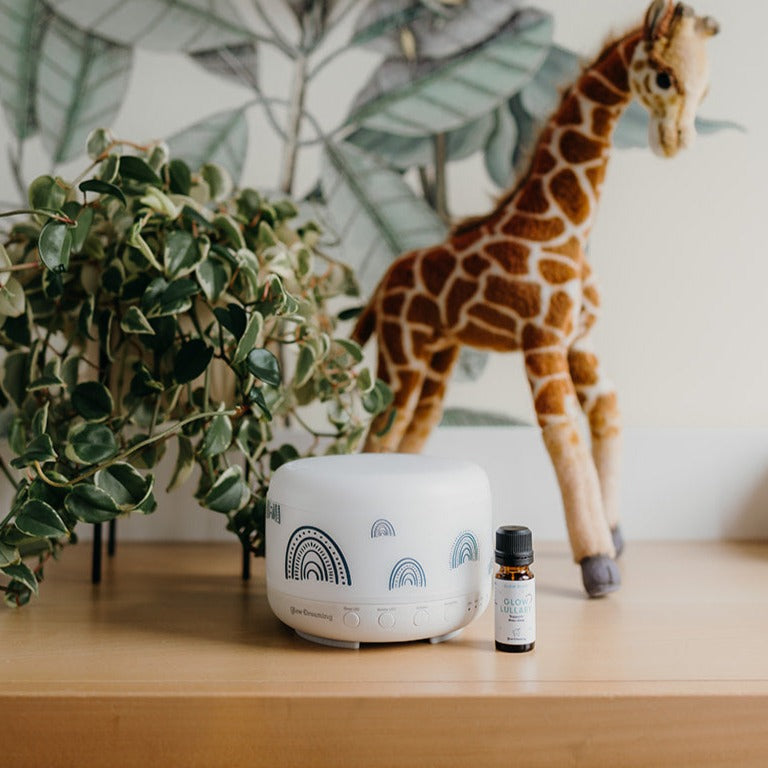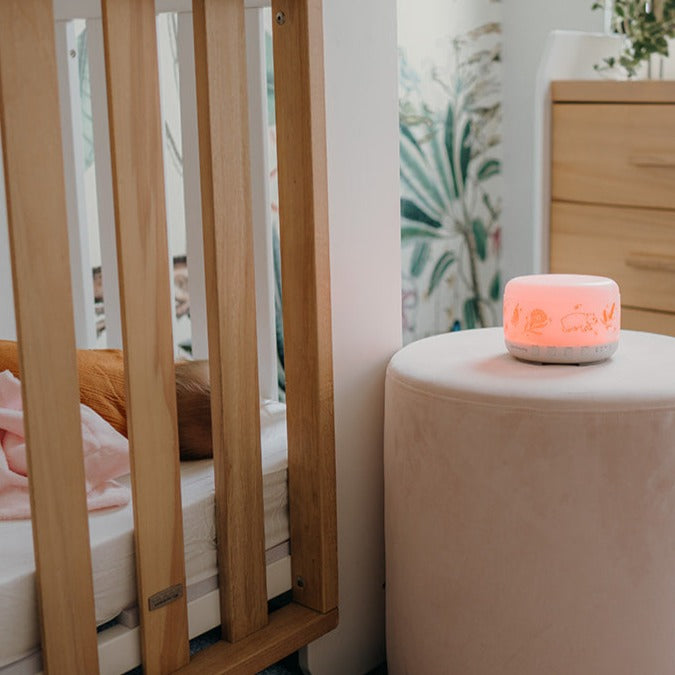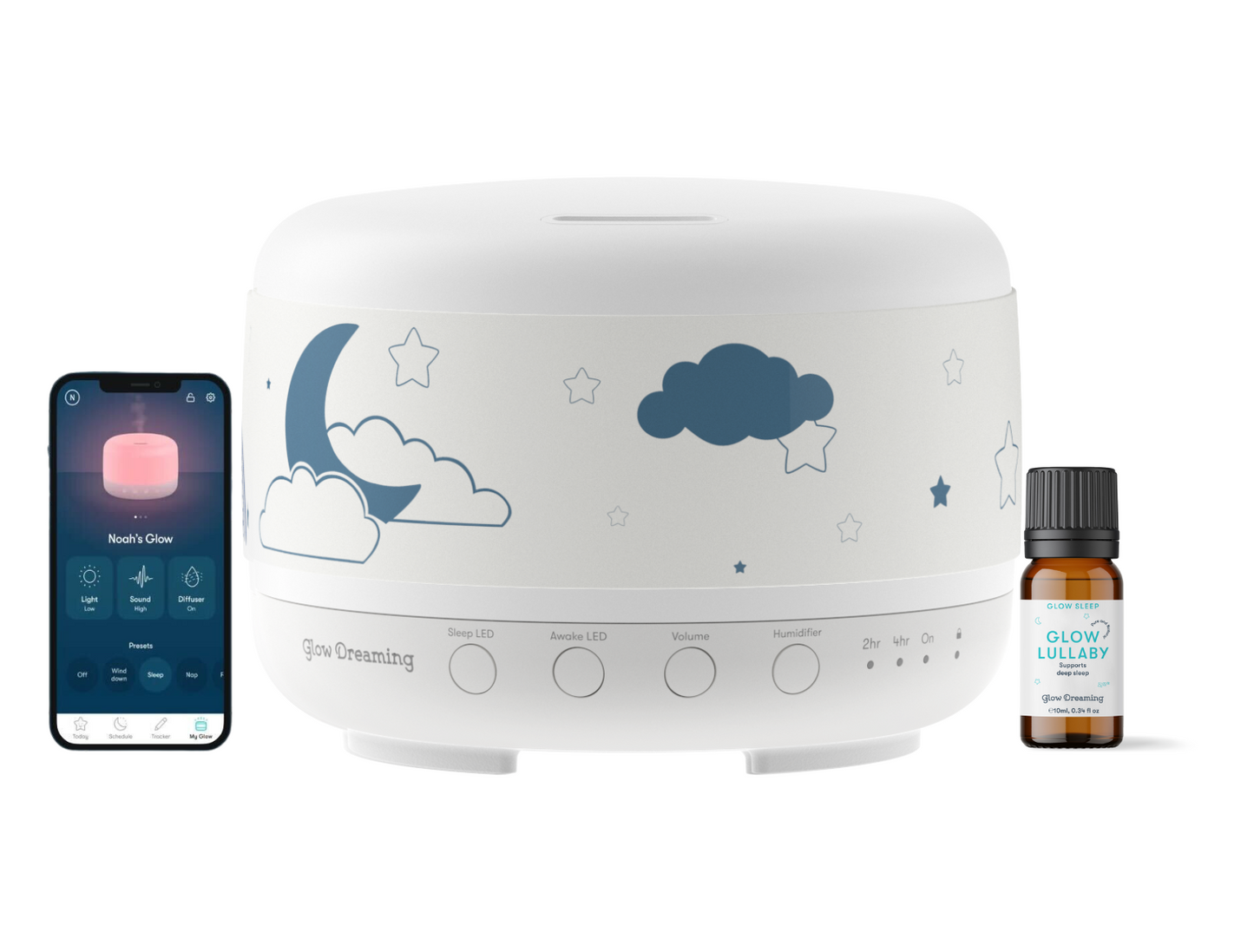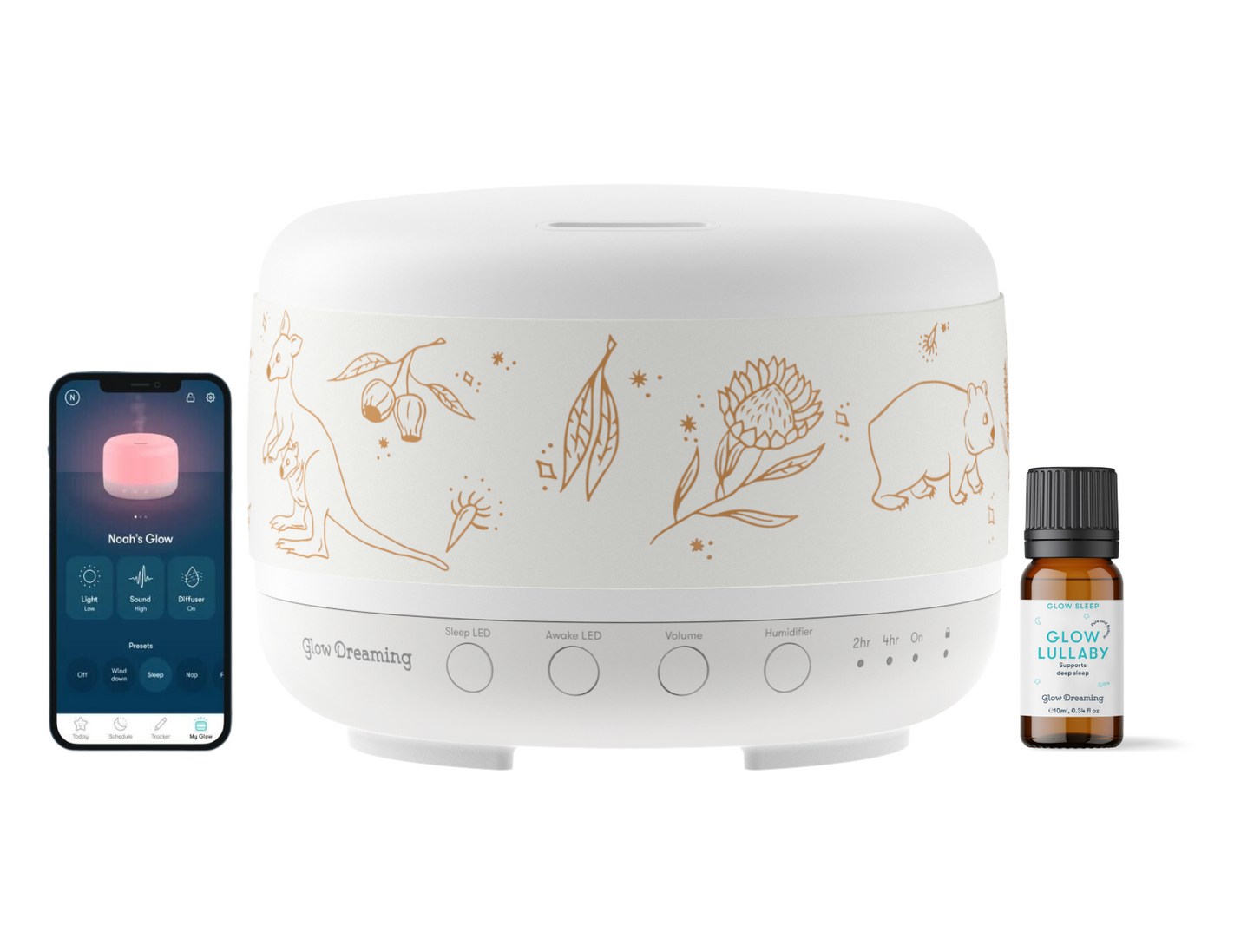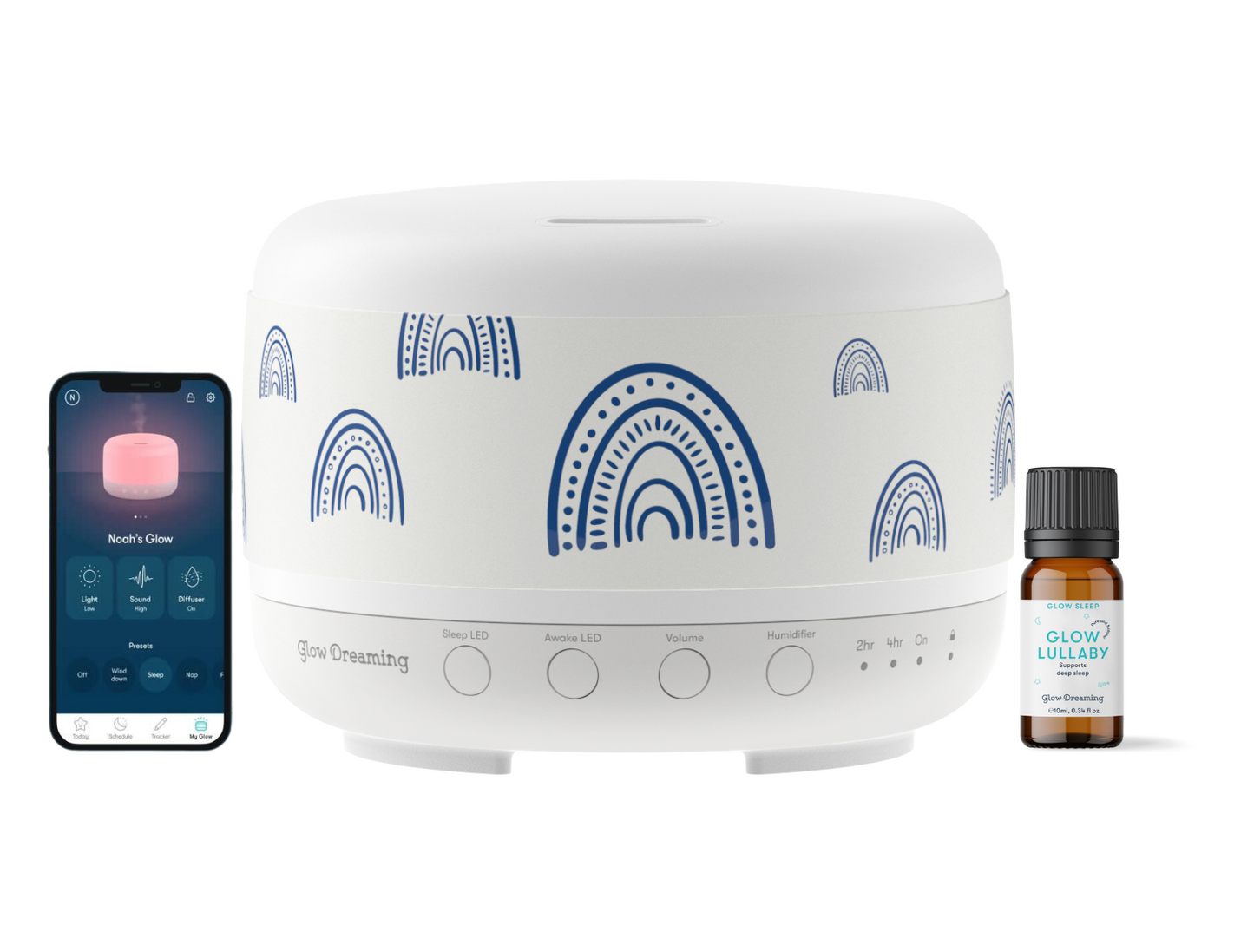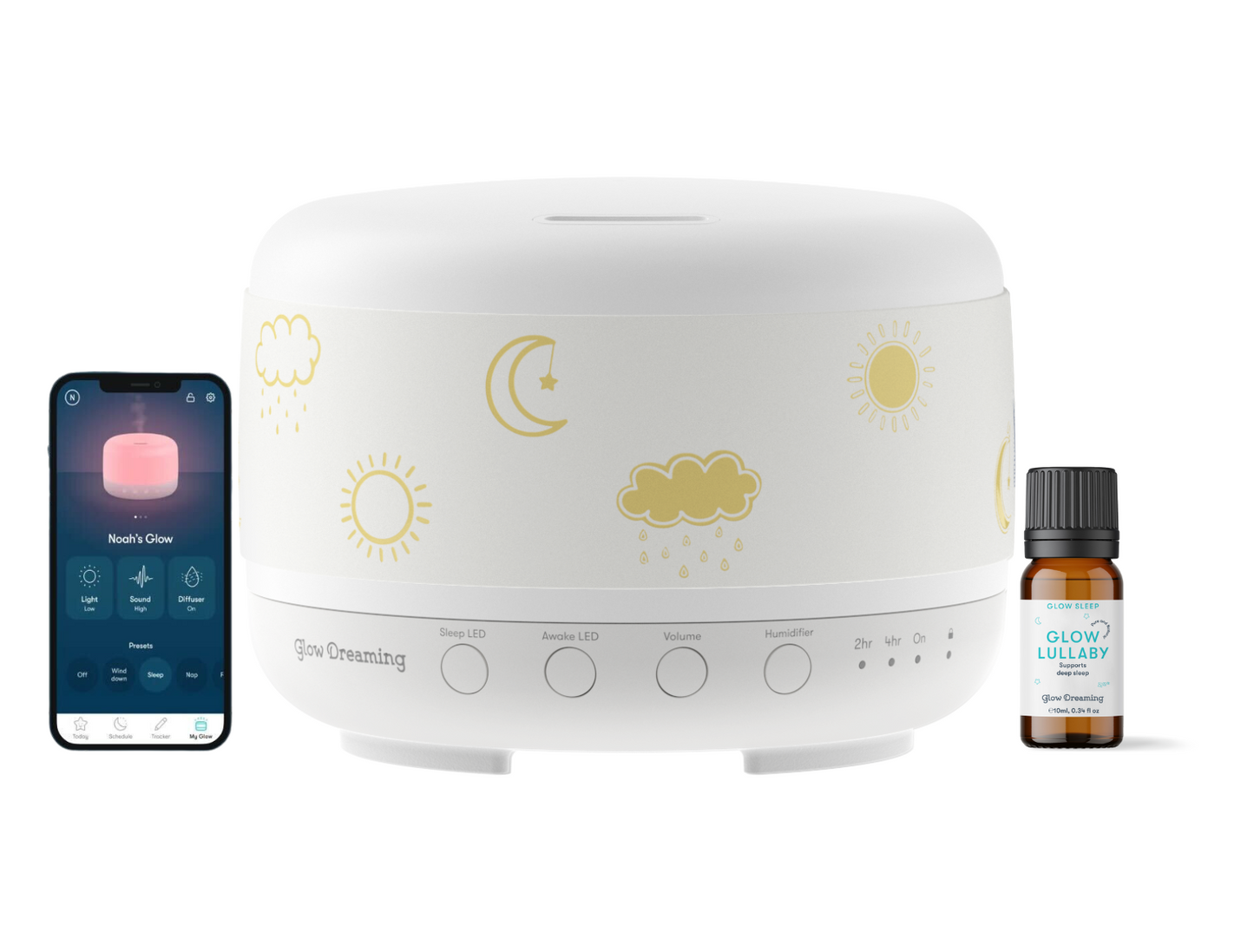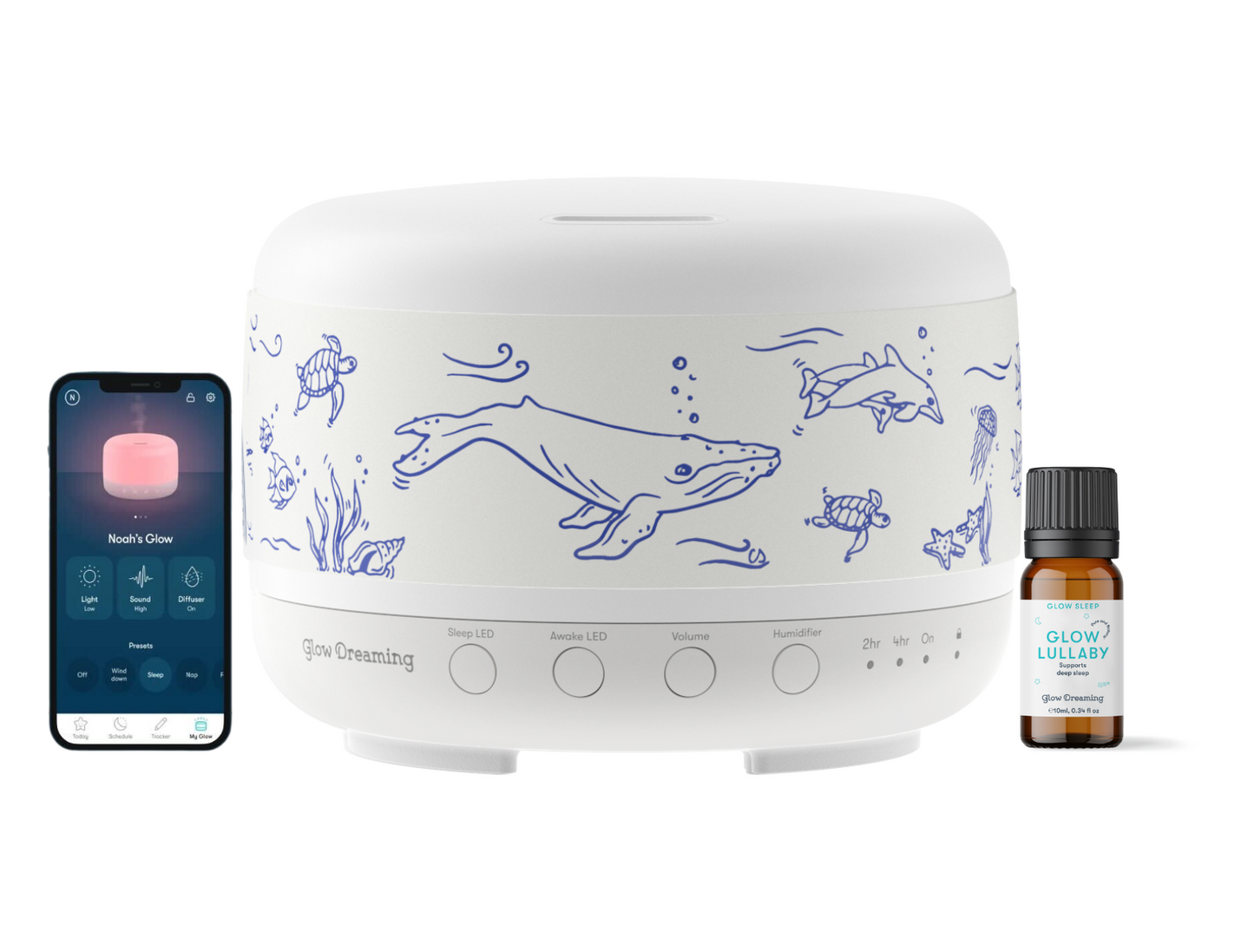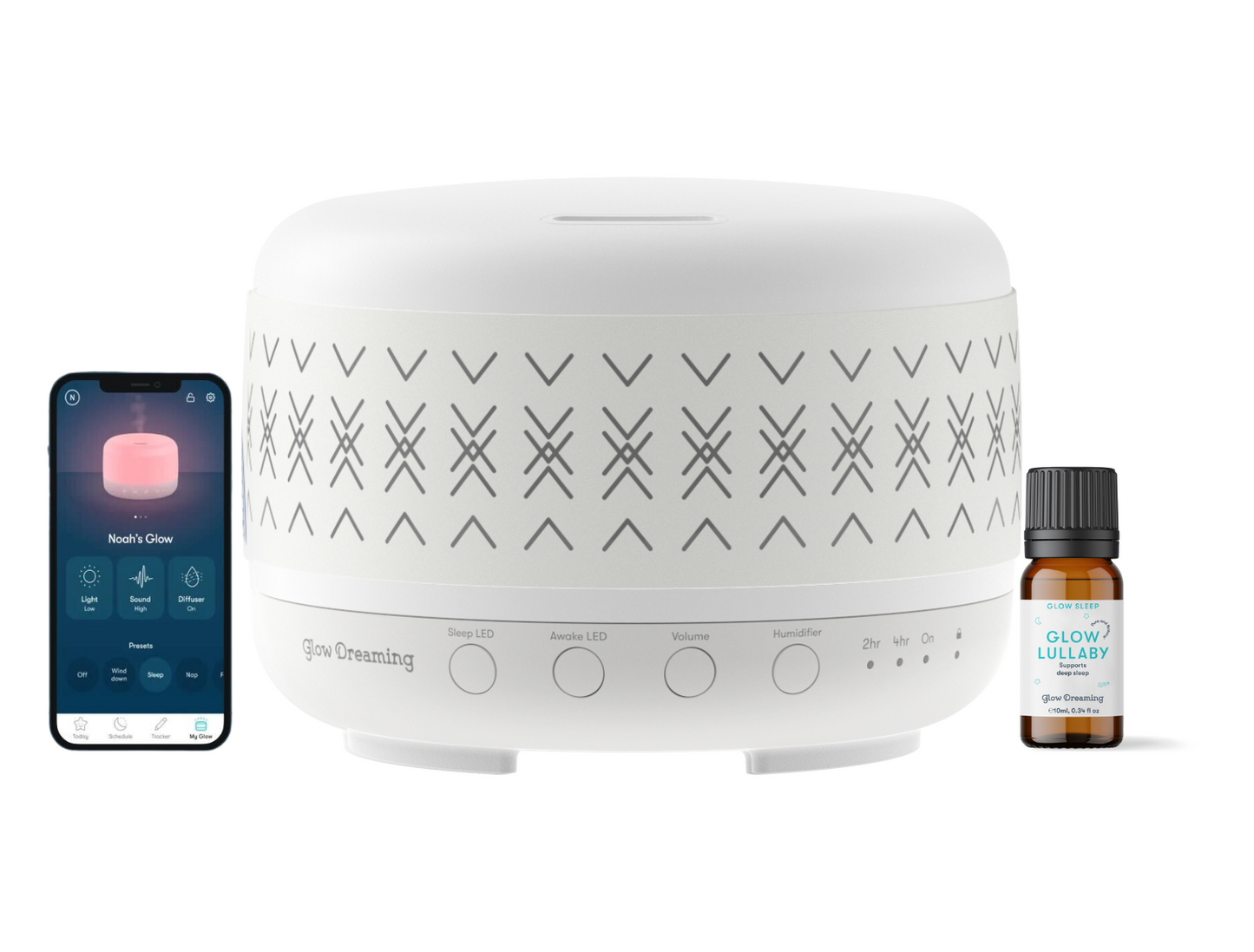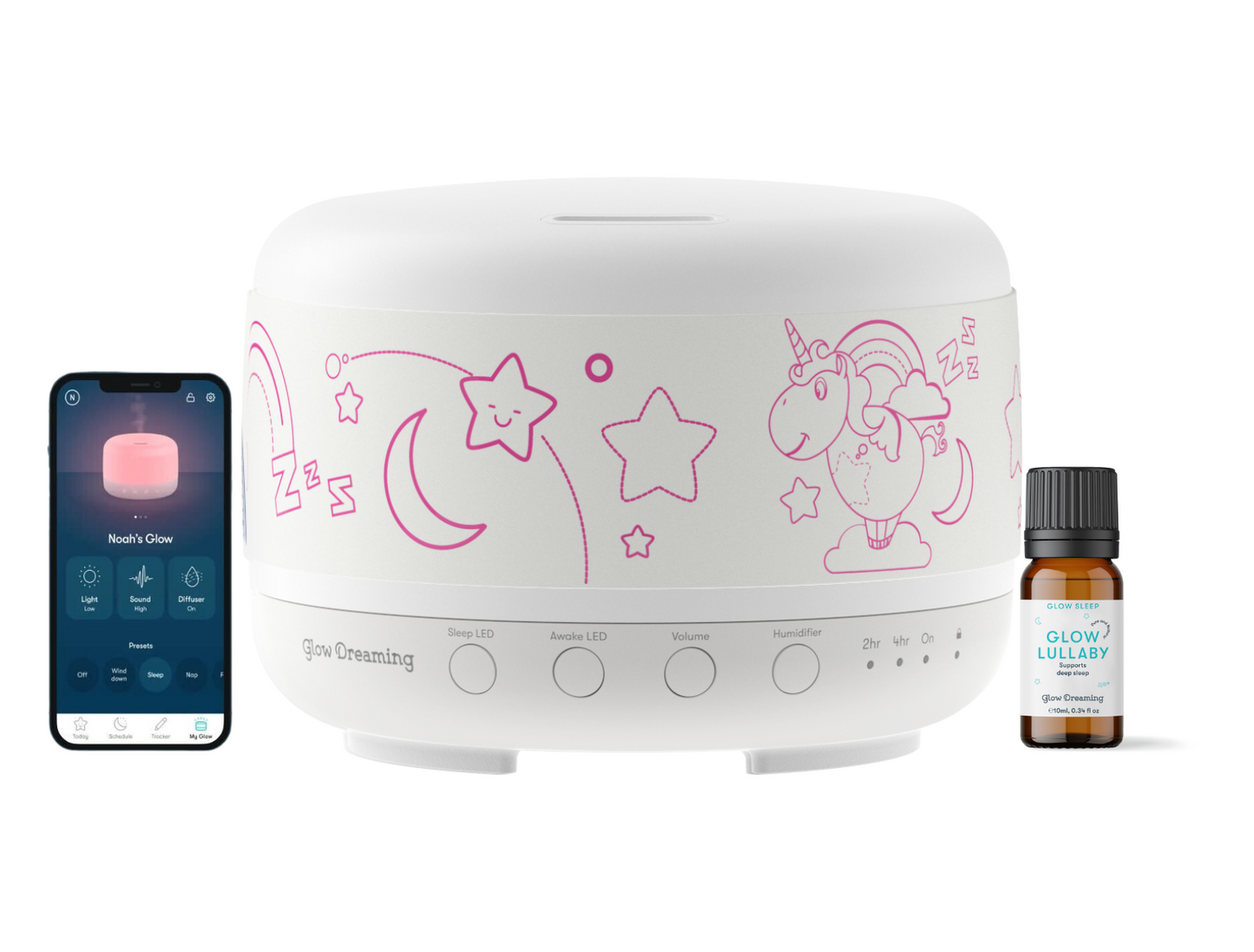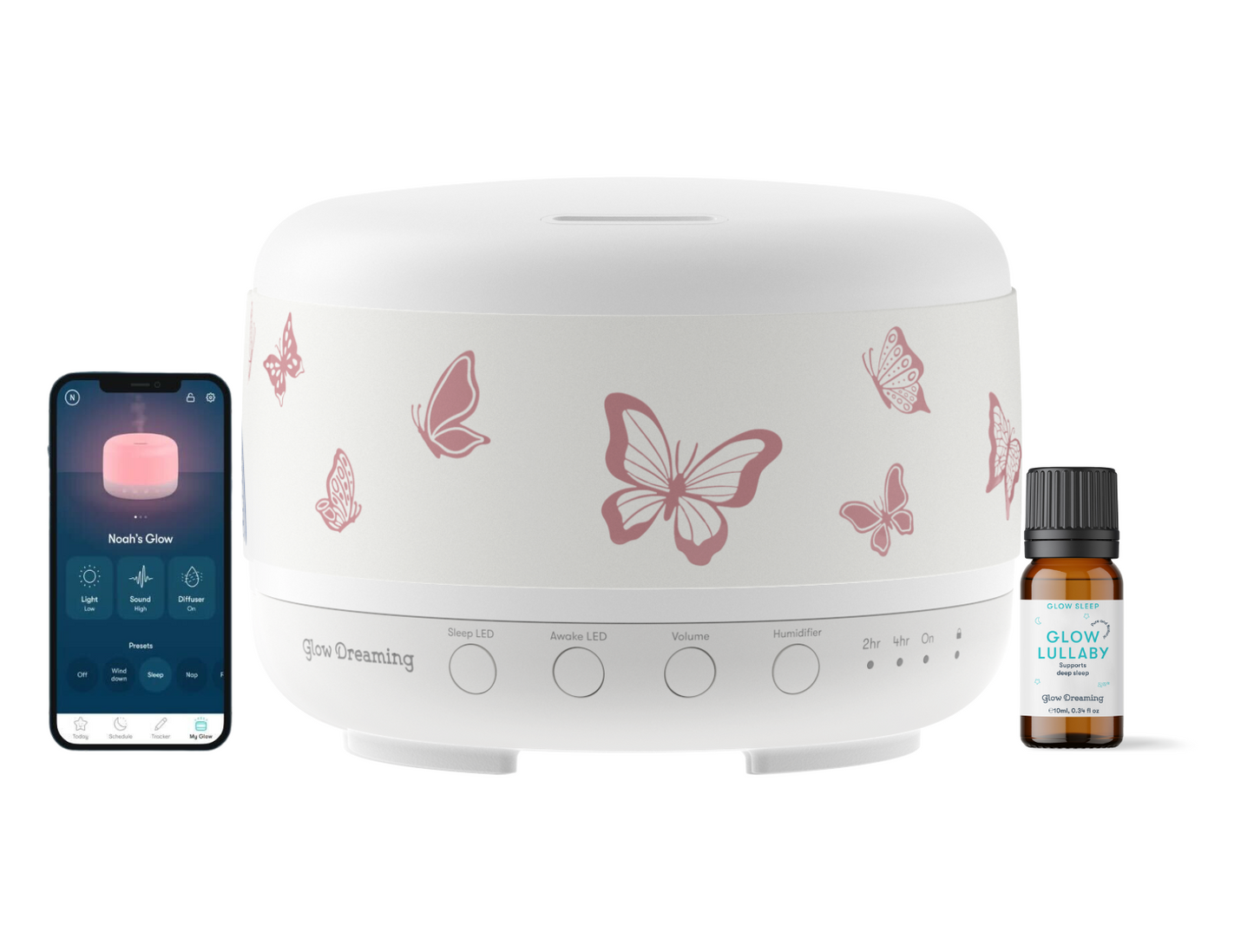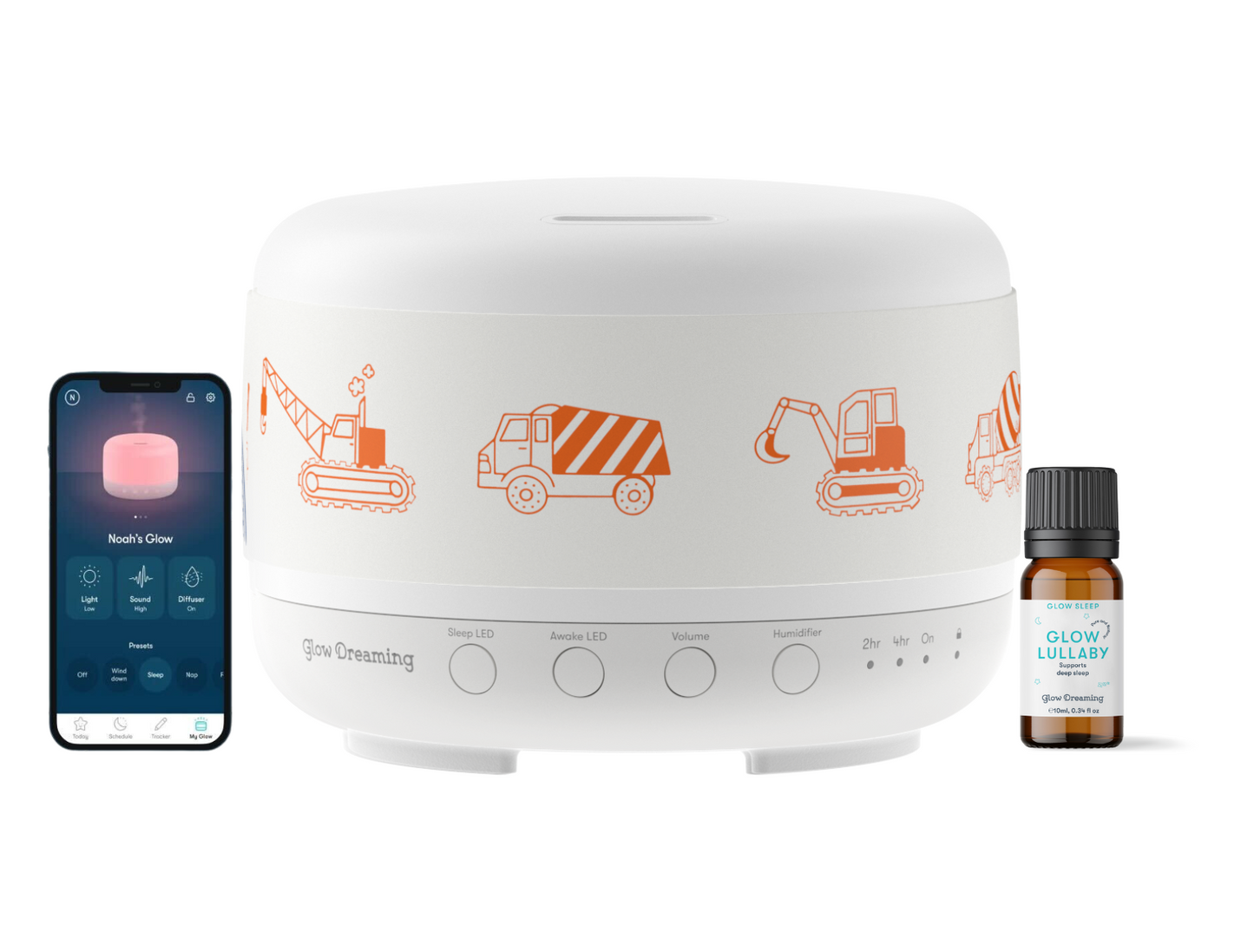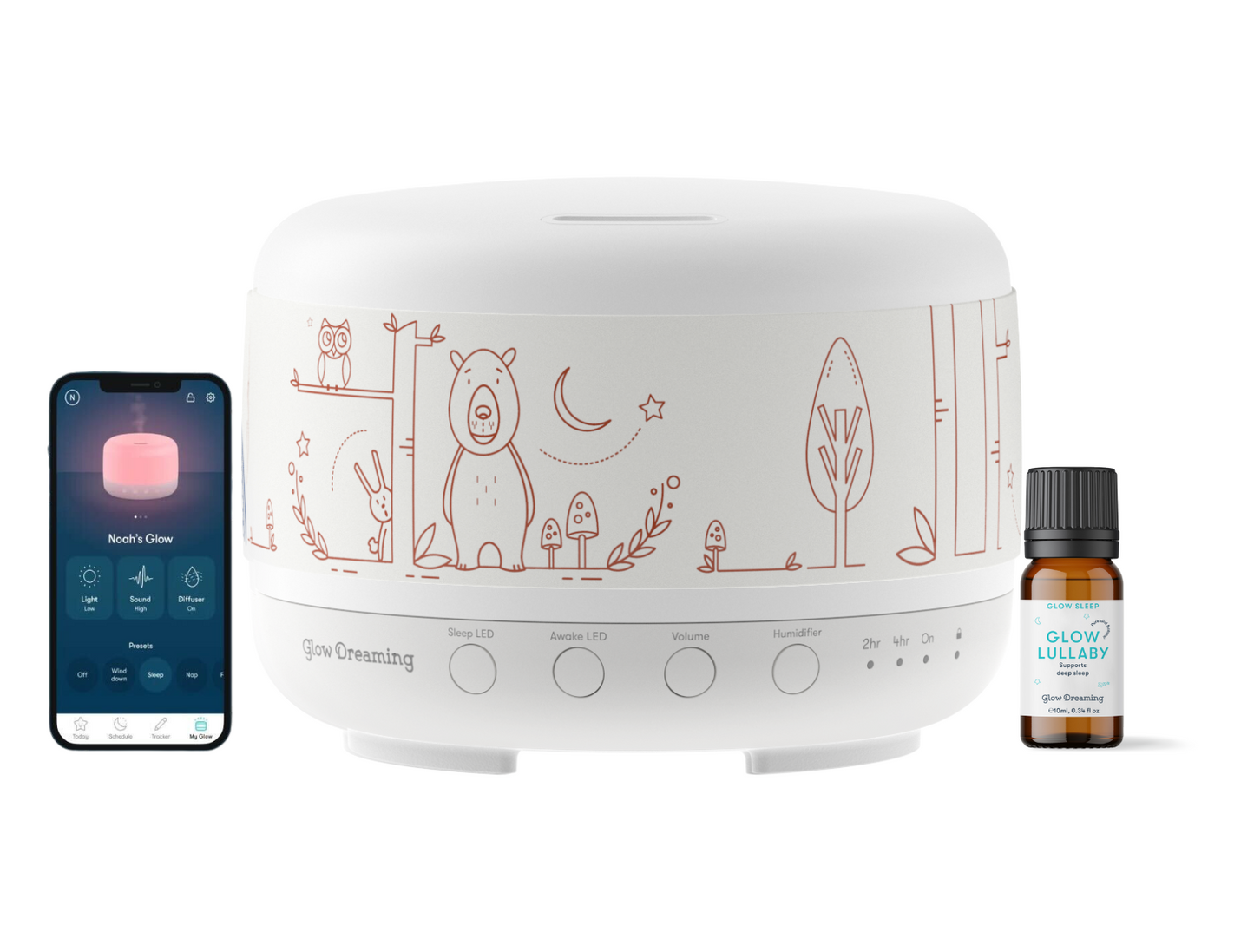Did you know that sleep is often the first thing to change or alter when babies are going through their different developmental leaps? If you didn't before, it's probably not overly shocking news!
We've outlined the most prominent developmental changes in different age groups, as well as what you can expect to happen to their sleep as a result. But don't worry, we haven't left you hanging! We've also given you some guidance on what you can do to help support your babe through these sleep changes and how to get them back on track!
Developmental Leaps at 0-2 Weeks:
- Developing basic reflexes (e.g., rooting, sucking).
- Sleeping and feeding patterns emerge.
- Limited social interaction.
What to expect with their sleep:
-
Sleep is generally characterised by frequent awakenings for feeding and diaper changes.
-
What to do?
Follow a feed-wake-sleep cycle to establish a routine.
- Babies have irregular sleep patterns, making it challenging for to establish a routine.
- What to do?
Ensure a comfortable sleep environment with consistent conditions.
Developmental Leaps at 2-4 Weeks:
- More alert and responsive.
- Enhanced motor skills (e.g., following objects with eyes).
- Begin to smile.
What to expect with their sleep:
- Sleep patterns may become slightly more predictable.
- Some infants may start to experience colic-related sleep disturbances.
- What is Colic-related sleep disturbances?
Colic is a term used to describe excessive, unexplained crying and fussiness in babies, especially in the late afternoon or evening. Colic can be challenging for both babies and their parents and may be associated with gastrointestinal discomfort, but the exact cause is often unknown.
- What to do?
Consult a Paediatrician
Developmental Leaps at 4-6 Weeks:
- Increasing social responsiveness.
- Recognising primary caregivers.
- Improved head control.
What to expect with their sleep:
- Babies may have difficulty settling into longer stretches of sleep.
- What to do?
Create a Soothing Bedtime Routine with the support of the Glow Sleep Easy
- Fussiness and gas-related discomfort can disrupt sleep.
- What to do?
Incorporate supervised tummy time during the day. This can help with digestion and reduce gas-related discomfort.
Gently moving your baby's legs in a cycling motion can help relieve gas pains.
Consult a Paediatrician regarding dietary considerations and steps forward.
Developmental Leaps at 6-8 Weeks:
- Enhanced visual tracking.
- More frequent and varied expressions.
- May start to coo and make sounds.
What to expect with their sleep:
- Infants may begin to smile and show more responsiveness during awake periods. However, they may still wake frequently at night for feeding.
- What to do?
Maintain a soothing bedtime routine with the use of the Glow Sleep Easy.
Practice safe sleep habits as per the Red Nose Australia recommendations.
Comfort your little one as needed during the night with the support of your Glow Sleep Easy.
Developmental Leaps at 8-12 Weeks:
- Smiling and laughing become more frequent.
- Improved head control and body movement.
- Early attempts at reaching for objects.
What to expect with their sleep:
- Sleep can become more consolidated with longer stretches at night.
- Infants may start to establish more regular napping patterns.
- What to do?
Utilise the Glow Sleep Genie Sleep Schedule to help establish a consistent sleep schedule. The schedule provided to you is built based on the age of your little one however it is editable to ensure it meets your needs! It’s a great foundation to use and build upon.
Developmental Leaps at 12-16 Weeks:
- Increased social engagement.
- Babbling and making more sounds.
- Rolling over from back to tummy.
What to expect with their sleep:
- Rolling over from back to tummy may lead to nighttime awakenings as infants learn to sleep in different positions.
- What to do?
If you’re swaddling, ensure you swap over to a roll-safe swaddle.
- Babies may start teething, causing discomfort.
- What to do?
Teething can cause your little one to struggle to settle and wake frequently though the night. The Glow Sleep Easy keeps your sleep environment conducive to a good night sleep, helping your little one to settle if they wake through the night. Our essential oil range, particularly our Glow Lullaby Oil with helps to relax the mind and body.
Developmental Leaps at 4-6 Months:
- Beginning of solid food introduction.
- Sitting with support.
- Improved hand-eye coordination.
What to expect with their sleep:
- The 4-month sleep leap/regression can occur, leading to more frequent night waking’s.
- Some babies may start to experience separation anxiety.
- What do to:
The most important thing to do during a leap is to support your little one in the way they need. The Glow Sleep Easy helps to overcome sleep struggles that may occur by providing a reliable and healthy sleep routine that your child can depend on. The functions of the Glow Sleep Easy also allow your little one to find comfort and fall back to sleep independently when they go through a leap that impact their sleep.
Developmental Leaps at 6-9 Months:
- Crawling or scooting.
- Exploring objects with mouth.
- Stranger anxiety may emerge.
What to expect with their sleep:
- Crawling or scooting can result in nighttime wakeups as infants practice new motor skills. Naps may become shorter or less consistent.
- What to do:
This is a great time to begin exploring different activities you can do through the day now that your little one has become more active that can help contribute to a good sleep at the end of the day.
Though their naps have become shorter, it’s still a great idea to implement one, even if it’s just ‘quiet time’ to allow your little one to decompress and relax. These sorts of behaviours can have a very positive impact on sleep at the end of the day.
Developmental Leaps at 9-15 Months:
- First steps and walking
- Developing language skills with single words
- Increased independence and curiosity
What to expect with their sleep:
- The transition to one nap a day may lead to nap time resistance.
- What to do:
Keep consist with the routine of settling for a nap. At this age, most little ones still require that extra bit of sleep through the day! You may find some resistance here but it’s still a great idea to implement one, even if it’s just ‘quiet time’ to allow your little one to decompress and relax. These sorts of behaviours can have a very positive impact on sleep at the end of the day.
- Separation anxiety can be more pronounced, causing night wakings.
- What to do:
The most important thing to do during a leap is to support your little one in the way they need. The Glow Sleep Easy helps to overcome sleep struggles that may occur by providing a reliable and healthy sleep routine that your child can depend on. The functions of the Glow Sleep Easy also allow your little one to find comfort and fall back to sleep independently when they go through a leap that impact their sleep.
Developmental Leaps at 15-18 Months:
- Vocabulary expands.
- Parallel play with peers.
- Showing preferences for certain activities or toys.
What to expect with their sleep:
- Toddlers may have night terrors or nightmares, leading to night wakings.
- What to do?
Managing and overcoming night terrors can be done through reducing stress, implementing a relaxing bedtime routine and ensuring your little one is getting sufficient sleep. All these things are achieved with the use of the Glow Sleep Easy and using the device at the centre of your sleep routine.
- Teething and molars can cause discomfort.
- What to do?
Teething can cause your little one to struggle to settle and wake frequently though the night. The Glow Sleep Easy keeps your sleep environment conducive to a good night sleep, helping your little one to settle if they wake through the night. Our essential oil range, particularly our Glow Lullaby Oil with helps to relax the mind and body.
Developmental Leaps at 18-24 Months:
- More advanced language and sentences.
- Potty training.
- Temper tantrums and asserting independence.
What to expect with their sleep:
- Potty training can disrupt sleep routines with nighttime bathroom trips.
- What to do?
Limit liquids in the evening, particularly an hour or two before bedtime, to reduce the frequency of nighttime bathroom trips.
Offer a final potty break right before bedtime.
Use pull-up diapers or training pants designed for nighttime use.
Make the nighttime bathroom trips as brief and low-key as possible to avoid stimulating your child.
- Increased independence and assertiveness may result in bedtime battles.
- What do to?
Have a solid and established sleep routine in place for your little one to depend on. Kids love routine and knowing what to expect! Doing so will also allow your little one to manage their expectations on what happens at the end of the day.
You can also support independence in a way that isn’t detrimental to their sleep such as: what pyjamas do you want to wear? What story would you like to read?
Developmental Leaps at 2-3 Years:
- Developing friendships.
- Advanced motor skills (e.g., running, jumping).
- Imagination and pretend play.
What to expect with their sleep:
- Nighttime fears may be common, leading to reluctance to sleep alone.
- What to do?
Listen to your child's fears and acknowledge their feelings.
Speak to them about what they need to help them feel safe and comfortable in their room at bedtime. Every child is different!
- Sleep disturbances can occur due to active imaginations and vivid dreams.
- What to do?
Keep all activities before bed calm and relaxing. Avoid games, stories or books that over stimulate or excite your little one. Everything you do before bed should be conducive to sleep!
Developmental Leaps at 3-5 Years:
- Fine motor skills improvement (e.g., drawing)
- Pre-school and early education
- Developing problem-solving skills
What to expect with their sleep:
- Children may experience night terrors or sleepwalking.
- What to do?
Managing and overcoming night terrors can be done through reducing stress, implementing a relaxing bedtime routine, and ensuring your little one is getting sufficient sleep. All these things are achieved with the use of the Glow Sleep Easy and using the device at the centre of your sleep routine.
Keep all activities before bed calm and relaxing. Avoid games, stories or books that over stimulate or excite your little one. Everything you do before bed should be conducive to sleep!
- Changes in routine, such as starting school, can impact sleep patterns.
- What to do?
Recognise that starting school can be a significant change in your child's routine. Ensure they have a consistent bedtime and wake-up time, even on weekends.











